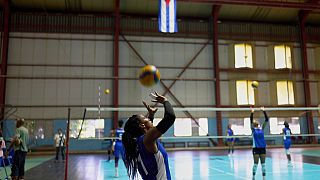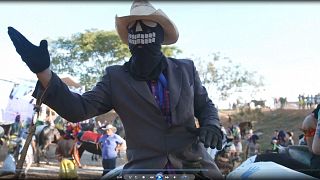Brazil
The International Olympic Committee (IOC) is doubling its efforts to prevent cheating athletes from participating in the Olympic Games which come off in August in Rio de Janeiro.
To this end, the IOC has doubled its budget for the pre-Olympic drug tests from $500,000 to $1 million with a keen interest in testing athletes from three countries.
“The programme comes on top of the extensive programme already being carried out by International Federations and National Anti-Doping Organisations. Special focus will be put on countries where the testing programme is non-compliant: Kenya, Russia and Mexico,” said Mark Adams, spokesman for the IOC president.
Kenya, a powerhouse in middle and long distance races has been in the spotlight recently over allegations of doping by its athletes.
Its parliament in April passed an anti-doping legislation which seeks to create a national agency as well as criminalising doping and making it punishable by up to a year in prison.
In spite of the legislation passed, the World Anti-Doping Agency (WADA) in May ruled that Kenya was in violation of doping laws, a move the International Association of Athletics Federation (IAAF) said highlighted its concerns about the country’s level of commitment to anti-doping.
Mexico is also on the IOC’s radar because it has failed to get its doping programme to conform with WADA specifications.
Russia on the other hand, has been at the heart of a huge doping scandal and its track and field athletes have been suspended pending an investigation. It is not yet clear if they will be able to compete in the Rio games.
Mark Adams told a news conference in Switzerland that “the fight against doping is a top priority for the IOC, which has established a zero-tolerance policy. Today we are taking further decisive action to protect the clean athletes at the Olympic Games Rio 2016.”
“The IOC will not hesitate to punish anyone within its reach responsible for using or providing doping products or methods, including officials, coaches and other members of the athlete’s entourage,” he added.
With some 31 athletes possibly facing a ban from the Rio Games after returning positive results from re-tests of their samples from the 2008 Beijing Games, Mark Adams says the IOC is currently focused on stopping cheats from participating in the Rio games.
“What we’re trying to do is make sure that any targeted athletes who have a positive result will be stopped from competing in Rio. That is for us the number one priority. If we achieve that, that’s the most important thing, the re-allocation of medals will follow obviously on from that. When that happens in the time scale, that’s not for me to say at this stage.”
Meanwhile, the IOC will on June 17 decide whether Russia should be readmitted to competition even though there have been growing calls for its athletes to be banned from the Rio games.
Reuters













01:47
New International Olympic Committee president Kirsty Coventry faces high expectations
00:28
Nairobi hawker shot at close range by police declared brain dead
01:50
Faith Kipyegon falls short of historic sub-four minute mile but vows to keep pushing
Go to video
Kenya's Interior minister accuses protesters of coup attempt after deadly demos
00:48
Death toll in Kenyan anti-government protests rises to 16, says rights group
01:29
Experts warn of danger of exercising in extreme heat and humidity